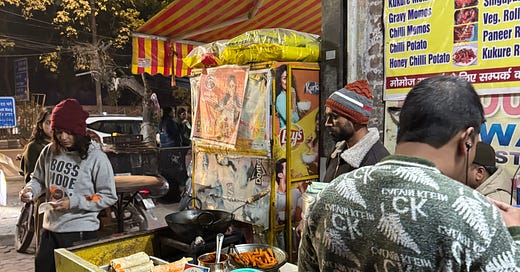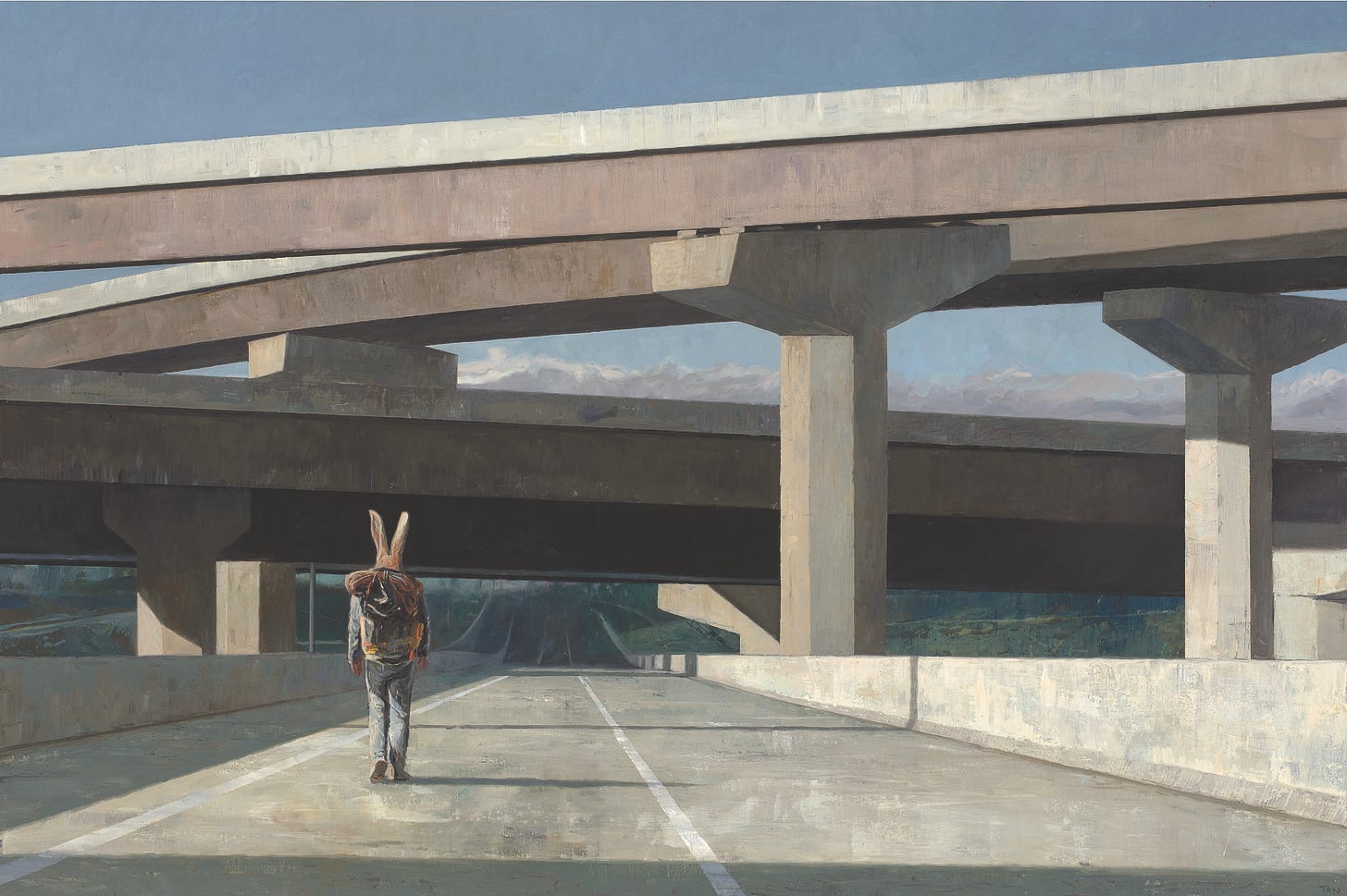I come from one of the least fashionable parts of Delhi — Vikas Puri. It's deeply suburban. Nothing really changes or leaves Vikas Puri. The only evolution you witness from year to year is in food — from matar-kulcha to Gupta burgers, from pishori tikkas to momos, from soya chaaps to avocado toast. Suburban Delhi overflows with food, religion, and community. The famous rebels of West Delhi — Dibakar Banerjee, Virat Kohli, Prabh Deep, Gautam Gambhir — may have developed their fierce, distinctive personalities, after having catapulted themselves against a culture that sees very little merit — or worse, "point" — in individual expression.
As someone who works in films and lives in Bombay, I love the city for its liberty, safety, and space for self-expression. This is what living in a city should feel like. Yet after 14 years here, I'm starting to fall out of love with it. The demonic approach toward redevelopment projects plays a big part in this. But it also has much to do with this inescapable "cool-ka-jhatka-vibes" of constant change and tech growth all around me. The dissonance in the ease of delivery apps, digital payments, 5G internet has started to make me (and a lot of us) feel alienated. I don't know how to process this speed of change and how to take part in it. I am sure I will be happy to be in the group that gets left behind but, truth be told, I don't want to be arsed about the race anyway. Sir, you can take two days to deliver chips, I am OK with the waiting. In fact, I want to be waiting. It sounds so damn good. What are you doing? Waiting…
In this chaos and constant sound of drilling, I found some moments of peace and solace in the most unexpected place — West Delhi. I came home to spend time with Nanu and the rest of the family. Among us cousins (who have all left West Delhi for different parts of India and the world), we repeated the same joke again, "it doesn't matter when you come to Vikas Puri, it could be months or years, the place never changes." Though it's never cracked really as a joke, it's usually said with a bit of pathos, sadness for a place that may never really reach its potential. My youngest Massi, who lives in Singapore, overheard us and said, "Maybe that's why it's special." And it's true: it is special precisely because it's so stubborn. It's a provincial town within a big city. Streets are full of ordinary people, doing the most ordinary things — aunties doing yoga, uncles having tikkas, langars being served, elderly people soaking in the winter sun, children bunking tuitions, and young people falling in love. Afternoons have their own rhythm, they can be lived. I also attended a sermon by a pandit who explained how our scriptures view death and grief. I cherished this experience — to engage with something complex and in the company of people I love and care for, to hear a dissection of a difficult emotion by a real person and not from a beautifully crafted film, YouTube video or a book. To see life and to be seen by it.
I am sure these everyday moments happen in Bombay too, but I've built such strong walls—or systems—that they never penetrate my personal life. Even taking the local train becomes a kind of activity rather than something ordinary. Everything must have a purpose because time is of the essence—hence the fucking 6-minute delivery. The alienation persists because even after 14 years, I remain an outsider and always will be. But even outsiders need normal faces and experiences, though I fear this natural rhythm of Bombay will forever elude me. The ordinary is being taken over by the corporate cantonments that are being built all over the country so that our MBA-ke-nanhe-bache don't feel what I feel. The identical coffee shops, food chains, apps, and noise all servicing the same class. However, this uniformity isn't organic to our country. While communities have their challenges and issues, their absence makes us feel less human. We are, after all, social animals.
I am back in Bombay now, writing this from my Uber with noise-cancellation earphones plugged in. This is how the rest of the evening will unfold: I will enter my home, kiss my wife and cat, exercise, then open YouTube to find another Jacques Pépin recipe for dinner. I'll stand at the stove, staring at the sizzling pan as I've done hundreds of times before, wondering if the browning is done, wondering about everything but the chicken. As I continue to wonder, my subconscious will be starting its searching for that ordinary life that exists beyond house parties, meetings, cinema halls, mobile screens, books, panel discussions, and hotel rooms. It will seek beyond the silence of my noise-cancelling headphones, beyond the chill of airport terminals, the smell of cabs, the morning coffee, and far past the endless white of the blank page. It'll end its search when it meets that particular default setting of life—where I am a small part of a larger story, where I belong simply by standing on a road, smiling to myself, without reason.






The gentrifications of teh cities have created the mass epidemic of loneliness invisible to everyone but felt by everyone.
'to hear a dissection of a difficult emotion by a real person and not from a beautifully crafted film, YouTube video or a book.' :')